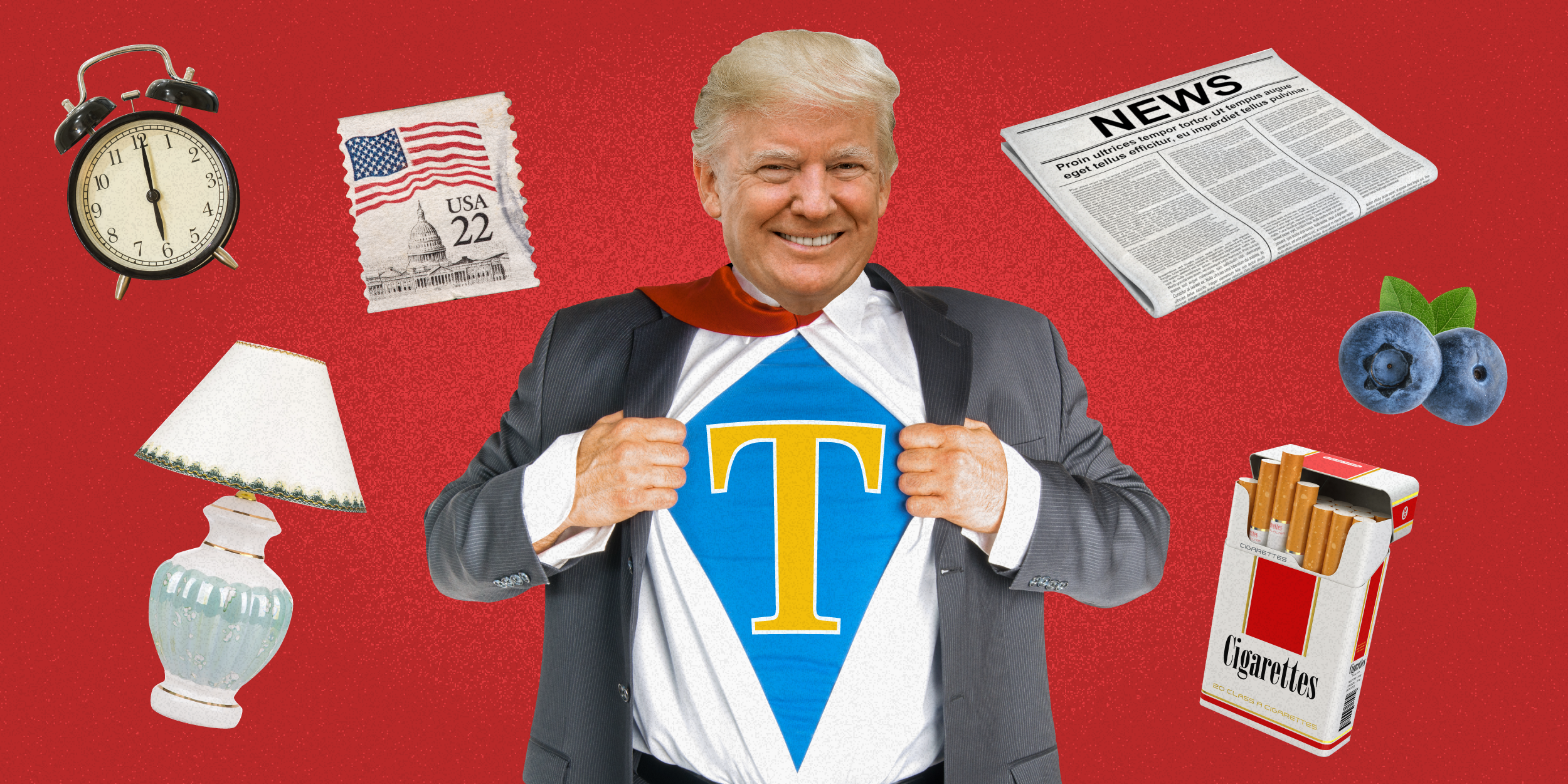- President Donald Trump expressed optimism for a US-China trade deal on Tuesday but warned if talks fall apart he is “a Tariff Man.”
- The warning comes days after Trump and Chinese President Xi Jinping made a preliminary trade agreement to delay the trade war’s escalation.
- The US promised to delay the increase of its tariffs on $200 billion worth of Chinese goods by 90 days.
- But the deal was also vague, and the uncertainty has led to skepticism that the divides between the US and Chinese goals can be bridged.
- Stocks fell following Trump’s tweetstorm, with the Dow Jones industrial average declining more than 3%.
President Donald Trump warned as part of a Tuesday tweetstorm that a trade deal with China could still fall through but said preliminary negotiations with Chinese President Xi Jinping were encouraging.
“President Xi and I want this deal to happen, and it probably will. But if not remember, I am a Tariff Man,” Trump said. “When people or countries come in to raid the great wealth of our Nation, I want them to pay for the privilege of doing so. It will always be the best way to max out our economic power.”
Markets took a dive following Trump’s tweetstorm, as the trade worries appeared to contribute to other investor concerns. The Dow Jones industrial average fell 799 points for the day, a drop of 3.1%. Similarly, the S&P 500 was down 90 points, or 3.2%, and the Nasdaq fell 283 points, or 3.8%.
Trump has long been a “Tariff Man,” advocating for duties on imported cars and goods as far back as the 1980s. In a 1990 interview with Playboy, the then real-estate investor said imposing tariffs on Japanese cars would be the first order of business if he ever won the presidency.
The warning comes days after Trump and Xi reached a preliminary agreement to delay the further escalation of the US-China trade war.
But Trump also expressed optimism for the 90-day negotiating period before tariffs are set to increase. He said Xi already agreed to take concrete steps toward alleviating the trade war.
"China is supposed to start buying Agricultural product and more immediately," he tweeted. "President Xi and I want this deal to happen, and it probably will."
Read more: The US-China trade war might still rage on despite a breakthrough deal between Trump and Xi
While the two sides left talks in Buenos Aires, with an upbeat attitude, confusion and a lack of clarity around what exactly Trump and Xi agreed to has left many experts skeptical that a concrete deal can be reached in such a short window.
The two countries issued wildly different statements, and Trump administration officials have offered changing accounts of the deal's details in the days since the meeting.
What is clear is that if no deal or further extension of talks is agreed upon by March 1, the US's tariffs on roughly $200 billion worth of Chinese goods will increase from the current 10% rate to 25%. Trump also threatened to impose tariffs on the remaining $267 billion worth of Chinese goods not currently subject to tariffs.
While the the negotiations are held over the next three months, the tariffs on $360 billion worth of goods flowing between the two countries will also remain in place.
The president also confirmed that US Trade Representative Robert Lighthizer, who has been critical of China in the past, will lead the negotiations with the help of other administration officials.
"The negotiations with China have already started. Unless extended, they will end 90 days from the date of our wonderful and very warm dinner with President Xi in Argentina," Trump said. "Bob Lighthizer will be working closely with Steve Mnuchin, Larry Kudlow, Wilbur Ross and Peter Navarro on seeing whether or not a REAL deal with China is actually possible. If it is, we will get it done."
This was also the first time that the president suggested the negotiating window could be extended.
But despite the uncertainty and threats, Trump also said he was open to signing an agreement if one is reached between Chinese and US negotiators.
"But if a fair deal is able to be made with China, one that does all of the many things we know must be finally done, I will happily sign," Trump said. "Let the negotiations begin."
While stocks had already given up a significant amount of their post-G20 gains, the tweets appeared to confirm investors fear that the Trump deal may not have been as solid as it first seemed and trade-war dangers still loomed.
Isaac Boltansky, a policy analyst at research and trading firm Compass Point, said Tuesday that there was already a "lingering sense of uncertainty" about the truce and there was "still reticence among some in the investment community."
"The trade war between the United States and China has been put on hold for the holidays, but the respite will be brief given the 90-day deadline and inherent difficulty in addressing the fundamental factors driving trade tensions between the two countries," he said. "This agreement is a short-term alleviation of trade tensions, but we caution that this is a reprieve rather than a resolution."
The trade wobbles are likely not the sole reasons for the fall. Prior to the G20 investors raised concerns with the path of Federal Reserve interest rate hikes, spreads between long- and short-term bonds inverted for the first time since the financial crisis, and worries about weak US economic data.

